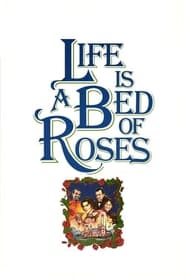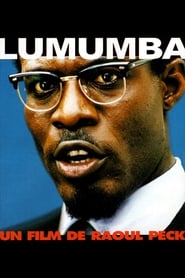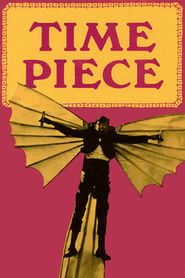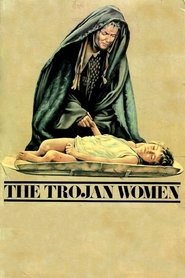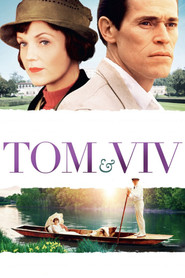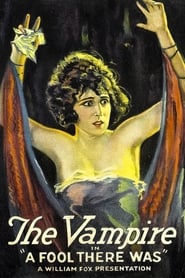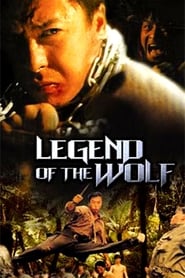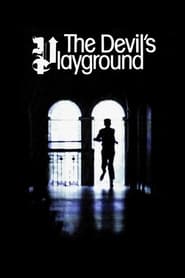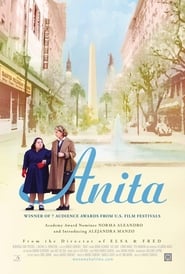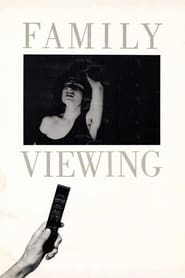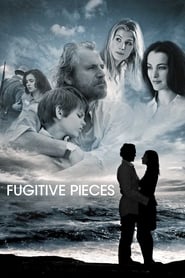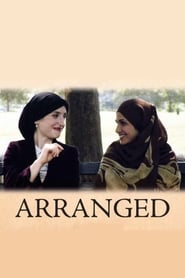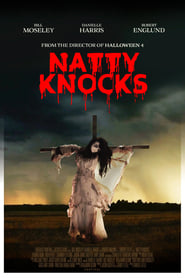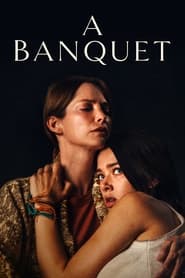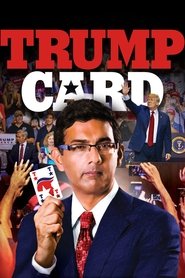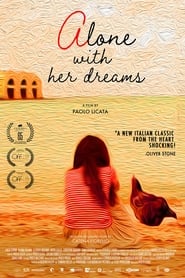Top Rated Movies on Kanopy - Page 292
-
Life Is a Bed of Roses
1983
star 5.7In this whimsical fable, Resnais deftly interweaves three story lines: the creation of an early-20th-century utopia; romantic high jinks at a school conference; and a fantasy sparked by F/X pioneer Georges Méliès. -
Deserter
2002
Deserter
2002
star 5.2Unlikely friends in a melting pot of confusion. Simon Murray fights for the French Foreign Legion. Pascal Dupont fights for himself. War torn men question honour, hope, morality...because you can desert everything...except yourself. -
Lumumba
2000
Lumumba
2000
star 6.8The true story of the rise to power and brutal assassination of the formerly vilified and later redeemed leader of the independent Congo, Patrice Lumumba. Using newly discovered historical evidence, Haitian-born and later Congo-raised writer and director Raoul Peck renders an emotional and tautly woven account of the mail clerk and beer salesman with a flair for oratory and an uncompromising belief in the capacity of his homeland to build a prosperous nation independent of its former Belgian overlords. Lumumba emerges here as the heroic sacrificial lamb dubiously portrayed by the international media and led to slaughter by commercial and political interests in Belgium, the United States, the international community, and Lumumba's own administration; a true story of political intrigue and murder where political entities, captains of commerce, and the military dovetail in their quest for economic and political hegemony. -
Time Piece
1965
Time Piece
1965
star 7.1Dislocation in time, time signatures, time as a philosophical concept, and slavery to time are some of the themes touched upon in this 9-minute experimental film, which was written, directed, and produced by Jim Henson. Screened for the first time at the Museum of Modern Art in May of 1965, "Time Piece" enjoyed an eighteen-month run at one Manhattan movie theater and was nominated for an Academy Award for Outstanding Short Subject. -
The Trojan Women
1971
The Trojan Women
1971
star 6.2In the aftermath of the Trojan Wars, Queen Hecuba takes stock of the defeated kingdom. Her son has been killed, and his widow, Andromache, is left to raise their son, Astyanax, alone. Hecuba's daughter, Cassandra, fears being enslaved by her Greek masters, while Helen of Troy risks being executed. Astyanax also becomes the focus of the Greeks' attention as the last male heir of the Trojan royal family. -
Tom & Viv
1994
Tom & Viv
1994
star 6.1The story of the marriage of the poet T. S. Eliot to socialite Vivienne Haigh-Wood, which had to cope with her gynaecological and emotional problems and his growing fame. -
A Fool There Was
1915
A Fool There Was
1915
star 5John Schuyler, a happily married lawyer, is appointed diplomat and sent to England. Due to an unfortunate accident, his wife and child can not come along with him. On the ship to England, Schuyler meets the notorious Vampire - a relentless gold digger who causes the moral degradation of those she seduces, first fascinating and then draining the very life from her victims. -
Fitzwilly
1967
Fitzwilly
1967
star 6When Miss Vicki's father dies, she becomes the world's greatest philanthropist. Unfortunately, she is flat broke! Her loyal butler, Claude Fitzwilliam, leads the household staff to rob from various businesses by charging goods to various wealthy people and misdirecting the shipments, all to keep Miss Vicki's standard of living. -
Legend of the Wolf
1997
Legend of the Wolf
1997
star 5.3Wolf is a war veteran who recounts the tale of his legendary youth to a young upstart killer. Flashback to a post-World War 2 time when the young Wolf is wandering the Chinese countryside in search of his missing memories. He only knows to meet someone at an abandoned temple. He ends up hooking up with a local villager, who intends to guide the Wolf to his destination. On the way, they find Wai-Yee, who’s been waiting for Wolf for quite some time. However, Wolf still can’t remember anything, until the bad guys come to find him, and they bear the terrible secret of the Wolf's past. -
The Devil's Playground
1977
star 6.5A powerful drama relating the intimate aspect of teenage boys and their priest/educators behind the walls of a religious institution where rigid discipline backfires natural feelings are deemed unnatural acts and human lives are controlled in the names of good intentions. -
Anita
2009
Anita
2009
star 7.1Anita is the story of a young woman with Down syndrome who lives a happy, routine life in Buenos Aires, being meticulously cared for by her mother Dora. One tragic morning in 1994, everything changes when Anita is left alone, confused and helpless after the nearby Argentine Israelite Mutual Association is bombed (the deadliest bombing in Argentina's history). As Anita wanders through the city, she learns not only to care for herself, but touches the lives of those around her, from an alcoholic to a family of Asian immigrants. -
Family Viewing
1987
Family Viewing
1987
star 5.4An emotionally constrained view of the displacement of human feelings in our video saturated society. Van regularly visits his grandmother in a run-down nursing home. His father depends on phone sex for guidance meanwhile erasing family homevideos of happier times with homemade pornography. Will Van rescue his grandmother and memories of his mother in time? -
Fugitive Pieces
2008
Fugitive Pieces
2008
star 6.2A child escapes from Poland during World War II and first heads to Greece before coming of age in Canada. -
Arranged
2007
Arranged
2007
star 6.1ARRANGED centers on the friendship between an Orthodox Jewish woman and a Muslim woman who meet as first-year teachers at a public school in Brooklyn. Over the course of the year they learn they share much in common - not least of which is that they are both going through the process of arranged marriages. -
Los bastardos
2008
Los bastardos
2008
star 5.3A 24 hour period in the lives of Fausto and Jesus, two undocumented Mexican day-laborers in L.A. Each day another task, each day the same pressure to find money. They go about their daily routine, standing on the corner at the Home Improvement Store waiting for work to come. Today, the job they are given is well paid compared to their poor usual wages. -
Borders of Love
2022
Borders of Love
2022
star 5.8After years together, Petr and Hana, partners in work and in life, share their unspoken erotic fantasies. What begins as an innocent conversation gradually turns into curious experimentation with a non-monogamous approach to their relationship. But sexual freedom tastes differently for each of them. -
Natty Knocks
2023
Natty Knocks
2023
star 5.1On Halloween Eve, Britt and the kids she is babysitting have to survive the horror of serial killer Abner Honeywell, who is himself the traumatized son of B-movie horror legend "Natty Knocks". -
A Banquet
2022
A Banquet
2022
star 4.2Widowed mother Holly is radically tested when her teenage daughter Betsey experiences a profound enlightenment and insists that her body is no longer her own, but in service to a higher power. Bound to her newfound faith, Betsey refuses to eat but loses no weight. In an agonizing dilemma, torn between love and fear, Holly is forced to confront the boundaries of her own beliefs. -
Trump Card
2020
Trump Card
2020
star 4.9Trump Card is an expose of the socialism, corruption and gangsterization that now define the Democratic Party. Whether it is the creeping socialism of Joe Biden or the overt socialism of Bernie Sanders, the film reveals what is unique about modern socialism, who is behind it, why it’s evil, and how we can work together with President Trump to stop it. -
Alone With Her Dreams
2019
star 7.5Set in the late 1960s, the film explores the issues of immigration, community values and family devotion through the eyes of a young girl, Lucia, who is left behind with her grandmother while her parents emigrate to France to find work. Lucia pains to be with her family as she struggles to learn her role in the tiny, traditional village under the watchful guidance of her stern grandmother.
 Netflix
Netflix
 Amazon Prime Video
Amazon Prime Video
 Apple iTunes
Apple iTunes
 Apple TV Plus
Apple TV Plus
 Disney Plus
Disney Plus
 Google Play Movies
Google Play Movies
 Paramount Plus
Paramount Plus
 Hulu
Hulu
 HBO Max
HBO Max
 YouTube
YouTube
 fuboTV
fuboTV
 Peacock
Peacock
 Peacock Premium
Peacock Premium
 Amazon Video
Amazon Video
 The Roku Channel
The Roku Channel
 AMC+
AMC+
 Kocowa
Kocowa
 Hoopla
Hoopla
 The CW
The CW
 Vudu
Vudu
 Starz
Starz
 Showtime
Showtime
 PBS
PBS
 Pantaflix
Pantaflix
 FXNow
FXNow
 Tubi TV
Tubi TV
 Kanopy
Kanopy
 Comedy Central
Comedy Central
 Crunchyroll
Crunchyroll
 Microsoft Store
Microsoft Store
 Redbox
Redbox
 Sun Nxt
Sun Nxt
 ABC
ABC
 DIRECTV
DIRECTV
 Crackle
Crackle
 Fandor
Fandor
 Plex
Plex
